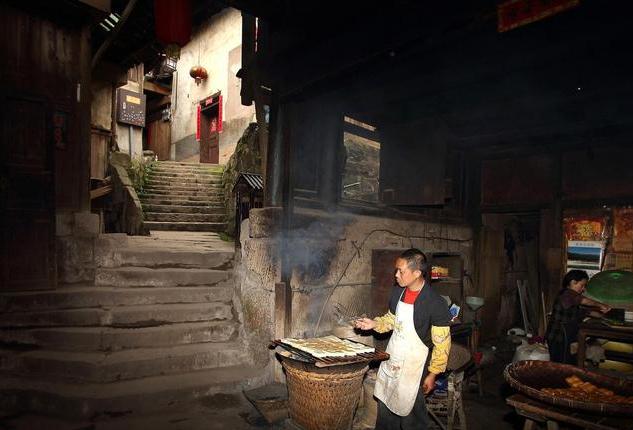Chinese culture is broad and profound, has a long history, and is all-encompassing, and one of the branches is the colloquialism, which in short is an easy-to-understand, but concise and concise discourse. Many sayings have been passed down from generation to generation by word of mouth and have been passed down to this day. The saying originates from life, acts on life, it involves all aspects of life, for example, in the countryside, the elderly often say this saying - "People have built another grave after five generations, and the house has been replaced by three generations for new people."

The literal meaning of this saying is very easy to understand, in line with the characteristics of the colloquial saying, which can be simply understood as that after five generations, a new grave will be raised to worship, and if the house exceeds three generations, it will be repaired or a new house will be built.
So, why is the saying goes? What's so special about it?
First, five generations of people have erected another grave
This saying is more puzzling is the first half of the sentence, why did five generations set up another grave? As we all know, ancient society was composed of patrilineal families, and the "five generations" mentioned here, like the "five generations" in the idiom "five generations in the same hall", refers to the five generations, also known as "five services".
If self-centered, the five generations can be traced back to the father, grandfather, great-grandfather, and high ancestor, and the lower can be traced back to the son, grandson, great-grandson, and great-grandson. Taken together, including oneself, is what people call the "Nine Tribes."
Understand the meaning of the five generations, the first half of the saying is better understood, "five generations of another grave", is the ancients of the social phenomenon of the time of the summary, if you and another person's kinship, more than five generations, there are eight or nine times of worship is not the same ancestral hall, that is to say, in many cases, within five generations, has completed the "separate grave".
It is often said that "eight hundred years ago it was a family", many surnames, originally worshipped the same ancestral hall, but the descendants have multiplied through branches and leaves, and for various reasons, such as migration, migration, exile, etc., they have evolved into branches and veins.
As the saying goes, "three years without going to the door, when the relatives are not kissed", and between the five services, nearly a hundred years apart, modern social psychology also proposed "Dunbar 150 numbers", referring to the number of human intelligence will allow humans to have a stable social network is 148 people, if more than the "five services", then less contact, kinship is naturally estranged.
Therefore, "one class of relatives for ten thousand years, one table for three thousand miles", "one generation of relatives, two representatives, three generations and four generations do not go away", and even "people have set up another grave after five generations", are not empty.
Second, the house has been replaced by three generations
As for the second half of the proverbial sentence, it is easier to understand the new person after three generations of the house.
Due to the limited level of ancient architecture, the overall solidity of the house is not strong, if the house exceeds three generations, the wall is seriously damaged, the house as a whole is not solid, and the problem cannot be solved through repair, only the house is demolished and rebuilt, or a new house is built.
Although it is said that the ancients built a house is a major event in life, it takes a lot of financial and material resources, but after three generations of accumulation, there is already enough capital to rebuild the new house.
Finally, after three generations, the original house became the common property of the children and grandchildren, and in some places, it was regarded as an ancestral hall or just as a memory.
summary:
The first half of the proverbial sentence warns people that personnel have metabolism, exchanges into ancient and modern, with the passage of time, one ancestral hall, then evolved into two ancestral halls, the original traced back, are the descendants of Yanhuang.
The second half of the proverbial sentence also has practical significance, although the house is now solid, but after three generations, the decoration in the house is basically renewed, is not the house after three generations of replacement!